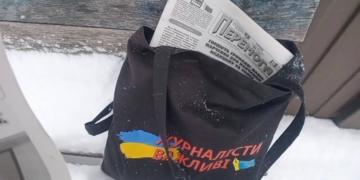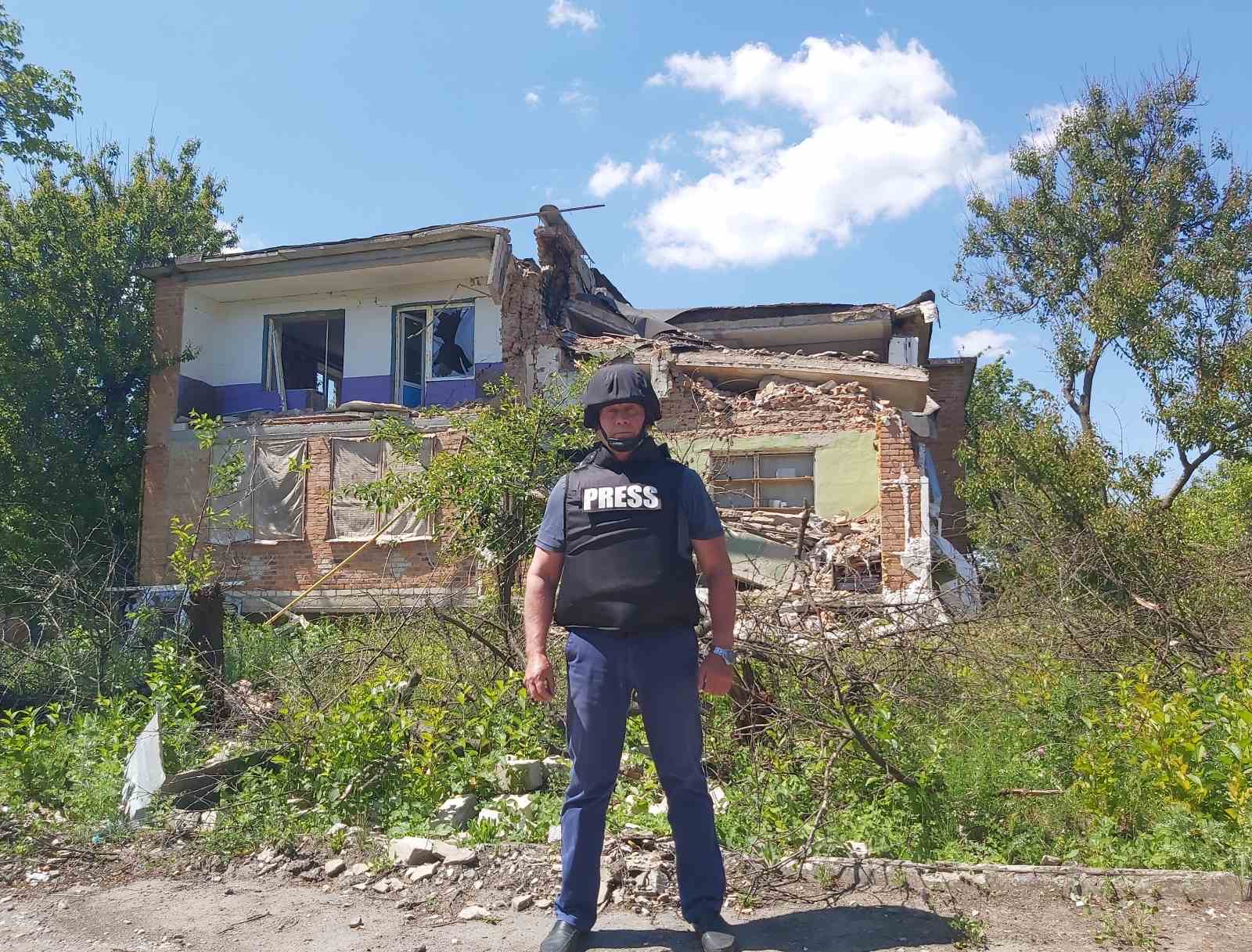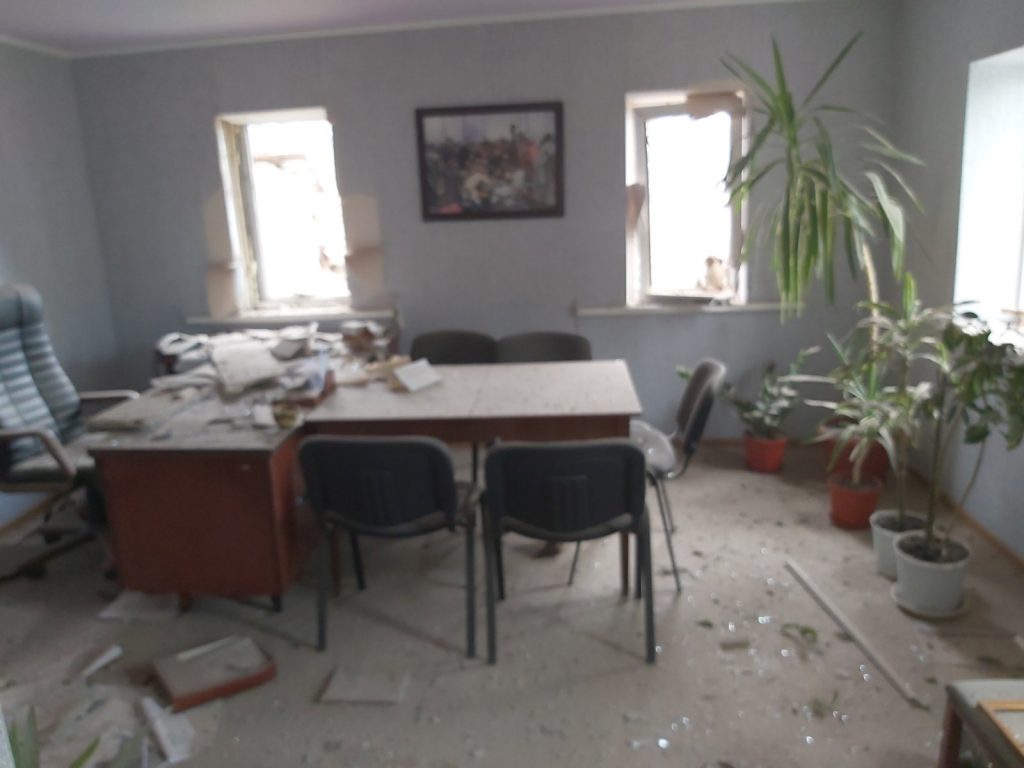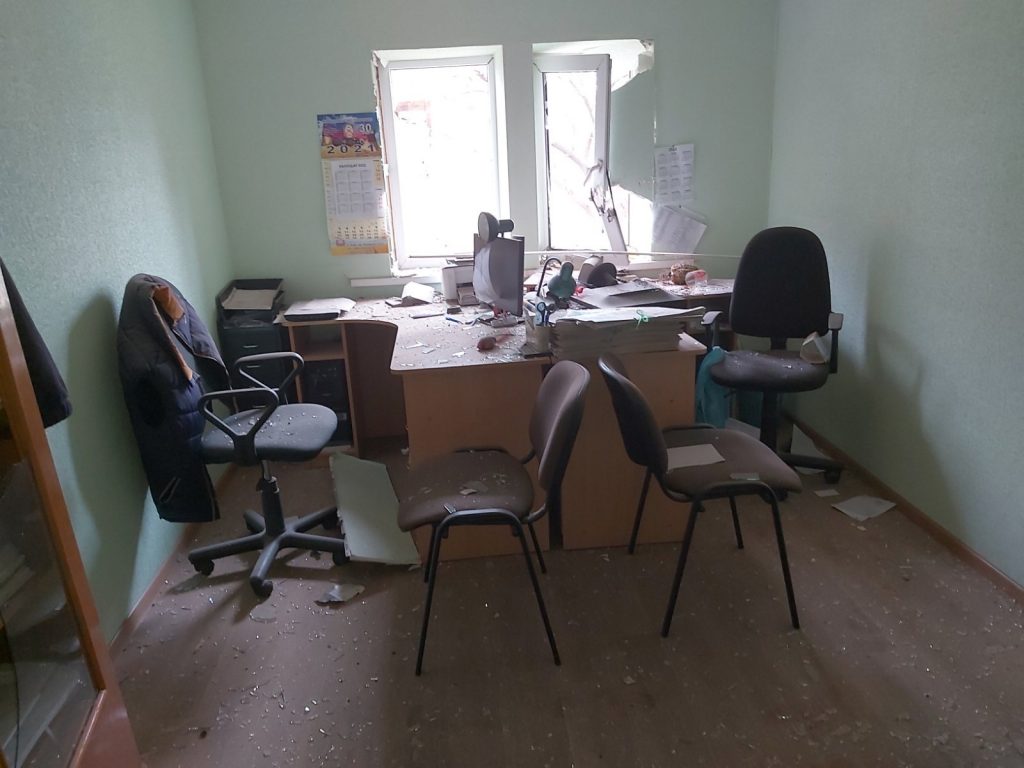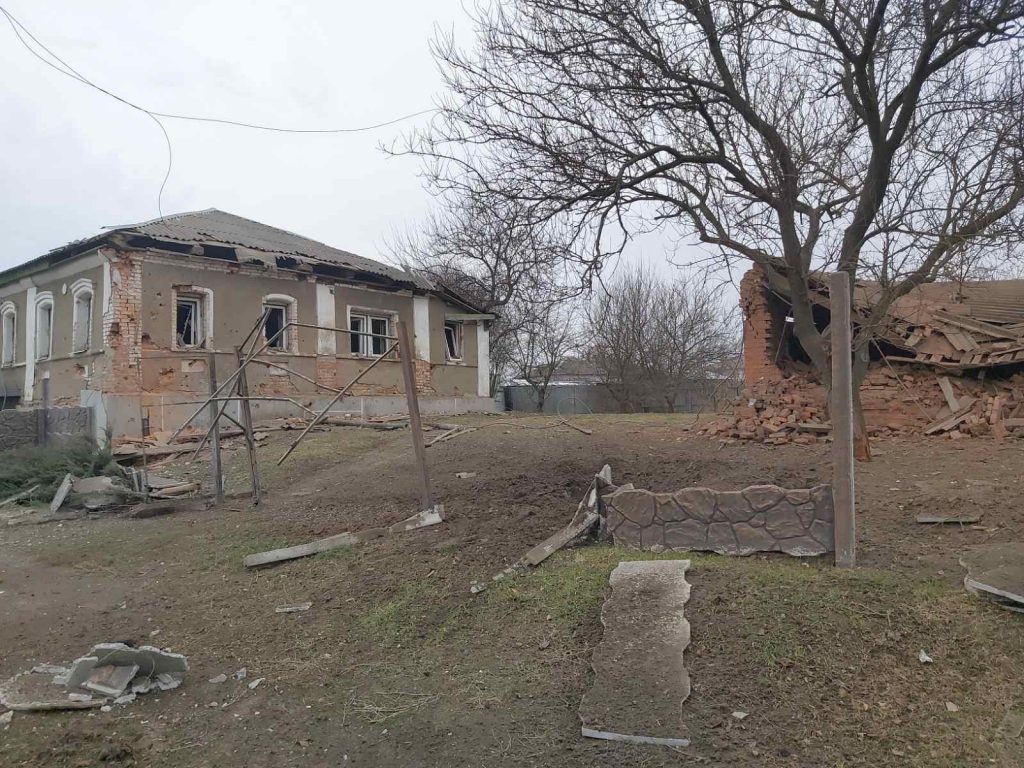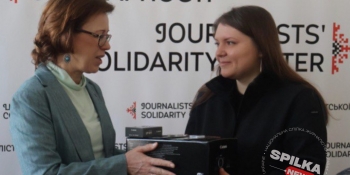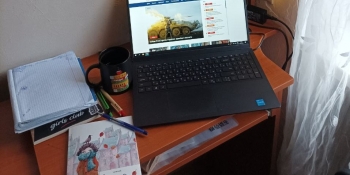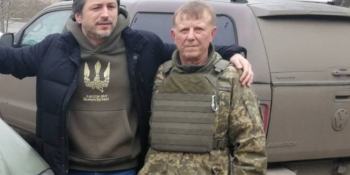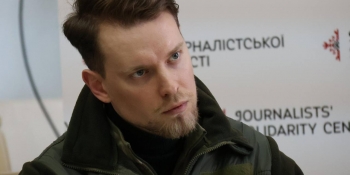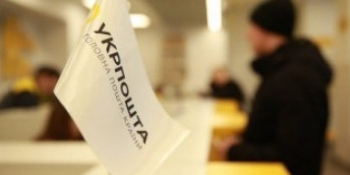Vasyl Miroshnyk is the editor-in-chief of the Zolochiv newspaper Zoria, one of the leading publications of the Bohodukhiv district of the Kharkiv Region. The beginning of a full-scale war found Vasyl at home. On that Thursday, early in the morning, he was going to go to Kharkiv to pick up a fresh edition of the newspaper. But plans changed dramatically when the first rockets flew over his head.
“For 2-3 months, a howitzer was moving up and down. It stopped at the northern outskirts of Zolochiv and started shelling 18-20-30 times on residential areas”
“Every Thursday, I left home very early, because we picked up the newspaper from the printing house at 7 a.m. So, I went out into the yard, started the car, and at that moment two rockets flew over my head. Literally a minute later, maybe less, I heard explosions from the direction of Kharkiv, where I was going to go. And the rockets were flying from the side of Russia, next to Zolochiv, we have literally 20 kilometers here, this is it, there is the border with Russia there. Grayvoron, Borysivka, if you have heard such Russian names. These rockets hit Kharkiv,” recalls Vasyl Miroshnyk.
A few minutes later, the journalist started the car, but the car had not yet moved when the son called and begged his father not to go anywhere. Vasyl Miroshnyk did not take away the circulation of the already printed newspaper, because at that time the issue of the safety of relatives and colleagues was in the foreground. Vasyl went to Kharkiv a little later and was horrified by what he saw.
“We have a rather unique zone: the Bohodukhiv district unites the Zolochiv, Krasnokutsk, and Malodukhiv communities, and combat operations were conducted only in our Zolochiv Community. Another uniqueness of this community was that at the very beginning of the war, we took people from Kharkiv to us. I was taking my grandson out of Pivnichna Saltivka, they were taking my in-laws out of shelling. I reached Kharkiv only two weeks later: what a horror it was there! Broken glass from cars on the road, wires from trolleybuses – twisted like a spiral… Remains of human clothes, and blood on the asphalt. We organized materials about how people are taken out of Kharkiv, and how they are helped. I must say that our community worked very well then: they resettled people, clothed them, fed them… And some people came “naked and barefoot,” the journalist says.
Things got hot in Zolochiv when they captured the settlement of Makarove-Turove, which is adjacent to the famous Kozacha Lopan. Zolochiv is located in a lowland, so, it was reached by the enemy artillery almost every day.
“These were not some random hits. For 2-3 months, a self-propelled howitzer traveled up and down. It stopped on the northern outskirts of Zolochiv and started shelling 18-20-30 times on residential areas. Then their jerk, representing the Russian army, said that a tank repair plant had been destroyed in Zolochiv. But we had no industrial facilities at all. And then they said there was some kind of a bio-laboratory with mice or rabbits, and that there was an accumulation of military equipment, although there was nothing of those here. In a word, from that side, they broke into Kozacha Lopan and Okhtyrka. Nobody was interested in Zolochiv,” says the journalist.
“The gate from the newsroom was found some 200 meters away, near the administration. My office is full of debris”
But the newsroom of the newspaper Zoria in Zolochiv, the editor is convinced, was destroyed precisely on purpose. They hit the office intently no doubt local collaborators pointed it out. Fortunately, Vasyl stayed at home that day.
“I went to the newsroom and still tried to write something. It was very reassuring. It was very difficult to live in this hell, and we clung in every way to something peaceful, to something eternal and familiar. And one day I didn’t go to work. A friend came to my house, so, we sat well in the evening, and had a drink. They stayed up late, and in the morning, I couldn’t get up as early as usual, so I got up later. He escorted his friend out of the yard. We get into the car and this damn self-propelled howitzer started operating again. We went to the cellar because it was “falling” somewhere nearby. We had just sat down in the cellar when a friend called me and said: “Your newsroom got shelled,” says Miroshnyk. “I think that there were and still are many collaborators in Zolochiv. Some were happy to take pictures of our ruins. I drove up to the newsroom and saw that something was missing. And there was not enough fence. There was a European fence, but it was blown away by the blast wave. The gate from the newsroom was found some 200 meters away, near the administration. My office was riddled with debris. I am convinced that it was a tip-off because we were quite active on social networks. And there was already a story about us on television in Russia. When we arrived in the village of Udy, we were told that the Russians were shooting. The defector fled to Russia and used the surname Miroshnyk there. It was done in order to expose our alleged lie-telling. And I have not been there at all until now. They knew exactly who we were. You have definitely seen our work on social networks. And I am not exaggerating now: they took us very seriously.”
“In Zolochiv, people were convinced that it was Ukrainian artillery to shell us”
But the Zoria newspaper team continued to work, in particular, they paid a lot of attention to social networks. Somehow the media managed to avoid the excessive attention of the occupiers stationed in the Bohodukhiv district. But there were many sympathizers of the ‘russian world’ among residents, so the newspaper staff had to fight on the information front as well.
“In Zolochiv, people were convinced that it was Ukrainian artillery to shell us. This is because the settlement is close to Russia, and it was very easy to develop these attitudes here. Katsaps [nickname for russians] used this in the first weeks of the war. Now they don’t do that anymore. There are several settlements where the border with Russia is literally across the city. Your plot planted with potatoes finishes where the border with katsaps begins. We were convinced that they would never shoot at these settlements, explaining this idea with the fact that they are neighbors… But now it is clear that these jerks are attacking the houses of peaceful people. No one doubts this anymore,” said Vasyl Miroshnyk.
The liberation of Zolochiv was long-awaited, but it was quick. Vasyl Miroshnyk realized that the city was free from Russians when he did not hear any arrivals one morning.
“In our situation, we did not have to invent anything, everything is very simple. Do you know how to understand that Makarove-Turove is free from rashists? It is easy, it is when you wake up in the morning, and nothing hits your territory. We felt the departure of the katsaps, which happened unexpectedly. I was sleeping before that. I knew that when I heard the sound of automatic guns, they were coming. They had to go from the north. We slept with the windows open so we could jump out when we had to. Or on foot through the gardens, but that way there was a risk of being captured. And the boys told us that it was better not to get captured. And we could not leave this town either. That’s how we lived. But everything was so bad that I even took the family archive out of the house,” admits Vasyl Miroshnyk, whose life was significantly changed by the occupation.
“During the war, I lost 12 kilograms of weight. Then I learned that it was normal for a person who got into such circumstances. People became very religious. Somehow, I was supposed to go to the place where the roadblock was, but I thought that I should wash the car first. And at this time, a shell arrives at the place where I was supposed to go. And then I find out that on that day our headman Abdul Mikhalov was caught up in shelling on that road, and his car was damaged. And I should have been under that fire. I’ve been convinced more than once: if you really don’t want to go somewhere, or something is holding you back, it’s better not to do that or not to go there,” emphasized the journalist.
***
Now, Vasyl is determined to continue publishing the newspaper Zoria and restore Visnyk Bohodukhivshchyny, as he felt how important it is to convey correct information to citizens, especially in a region geographically close to Russia. The National Union of Journalists of Ukraine (NUJU), which offered financial support for the newspaper’s publishing, helps Vasyl Miroshnyk in this endeavor.
JOURNALISTS ARE IMPORTANT. Stories of Life and Work in Conditions of War is a cycle of materials prepared by the team of the NUJU with the support of the Swedish human rights organization Civil Rights Defenders.





